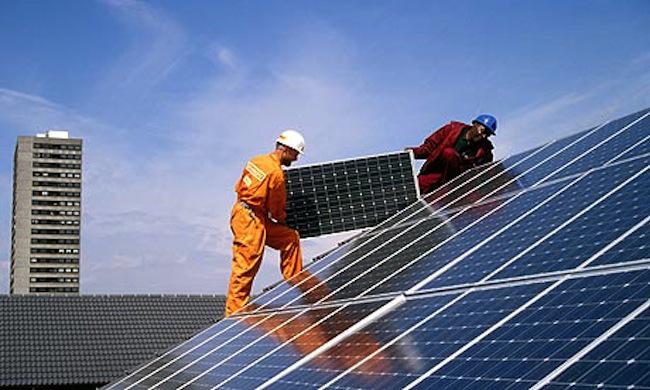In numbers there is strength are the words that come to mind when considering the recent action taken by three Australian city councils who have apparently banded together.
The councils of Melbourne, Maribyrnong and Yarra have taken steps in order to by-pass policies of federal and state governments and directly appeal to providers of clean energy and other renewables.
The city councils are in the process of talks with clean energy providers in order to strengthen their case of switching to solar power in the midst the Abbott’s Government’s resistance towards Renewable Energy Target and other renewable energy sources.
City councils brake away from Abbott climate policy
The city councils are looking a partnership with Federation Square, BankMecu, and Mirvac to gain electricity from their choice of renewable sources and purchase power of 100 gigawatts per hour yearly. The renewables should come as new and “shovel ready” projects meaning they have neither begun development nor secured any off-take agreements.
According to Melbourne’s Lord Mayor Robert Doyle, the city aims to secure competitive prices for electricity supply from renewables on a long-term basis. Doyle said the scale of demand should, hopefully, stimulate new investments in renewable energy to offset the stymied projects as a result of uncertain government support for the RET.
Melbourne city council seeking to secure long-term renewable deal
Partners launching the project at Melbourne Town Hall: (L-R) Grace Girardi, City of Maribyrnong; Sam Gaylard, City of Yarra; Cathy Oke, City of Melbourne; Arron Wood, City of Melbourne; Lord Mayor Robert Doyle; Sharon Pollard, Fed Square; Peter Taylor, bankmecu; Ben Hindmarsh, Mirvac; and Simon Cooper, NEXTDC. Photo: Andrew Bott
Melbourne Councillor Arron Wood said that gathering partners was not easy but those that committed to the city have history with it on sustainability programs including recycling initiatives and green building. This new initiative, according to Wood, may be considered an extended collaboration through a new model. To date, the partners have announced the tenders to supply 100 GW of electricity.
These tenders are expected to come back this 2015, after which an invitation from Melbourne for potential partners will be signed for the full tender procedure. Essential to this is a consortium of financier, generator, and retailer.
Prospective partner BankMecu is the country’s first customer-owned bank. Another prospective partner, Mirvac, is a leading real estate integrated company. Federation Square – home to world class events, specialty stores, cultural attractions, exceptional restaurants, and tourism experiences – leads the pack of prospective partners not only for the Melbourne council but to the other two councils as well with an impressive environmental portfolio including the use of tiles to power the LED lighting around it.
Domino-effect expected once viability of renewable program is affirmed
According to Wood, a domino effect is expected once the program’s viability is proven in economic terms. It can mobilise on a larger scale, with other city councils that have more sustainability agenda going on board as well. The bigger the aggregation becomes, the more reduction it will have in cost. But what if the price turns out just a tad bit higher than what traditional sources have?
Wood said it will then be up to the partners as to what the motivation is since some companies could be more than willing to pay premium prices in order to meet their particular sustainability goals internally or enhance their reputation externally. Either way, this step forward would be instrumental in helping Melbourne and other city councils achieve their individual clean energy targets by 2018.



